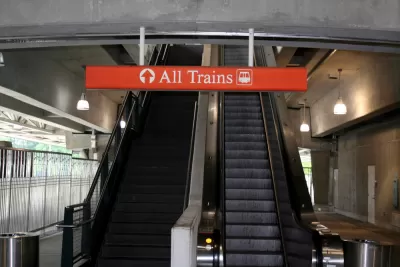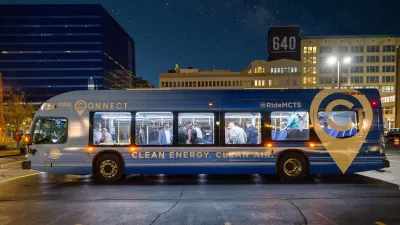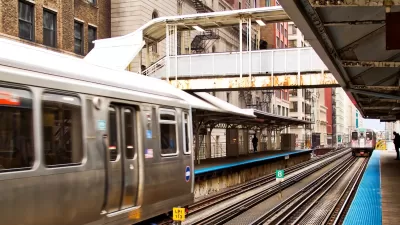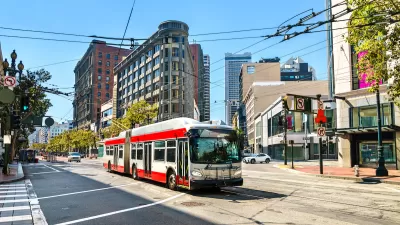The carrot at the end of a possible re-organization of the state of Georgia's regional transportation agencies would come in the shape of state funding for transit.

A series of articles by David Wickert explains the growing political support for an overhaul of management and funding of mass transit operators in the state of Georgia.
In an article from early December, Wickerts reports that committees in the both houses of the Georgia State Legislature "are studying whether to consolidate local and regional transit agencies," with the idea that such structural changes could reveal efficiencies.
The second article explicitly states the incentive for the state's transit agencies to go along with the idea: "the prospect that the consolidation effort could produce long-sought state funding of mass transit operations in Georgia."
Georgia infamously provides almost no state funding to transit agencies. "This year the state provided $75 million for mass transit capital projects (like buses and transit stations)," explains Wickerts in the first article. "But with the exception of subsidies for GRTA commuter bus service, Georgia remains one of the few states that provides no regular funding for mass transit."
The second article also reports that the Senate Study Committee on Regional Transit Solutions released a final list of recommendations that calls for "'an all-inclusive solution in the area of transit governance and funding' that could be enacted by the General Assembly in 2018."
Astute observers of Georgia transportation politics will recall that the current efforts are only the most recent effort "to get the fractious Atlanta region to pull in one direction when it comes to fixing its traffic problems." Previous efforts, according to Wickert, have not resolved any of the state's regional transportation challenges, "like the failed regional TSPLOST campaign in 2012."
FULL STORY: 2-hour commute from Snellville? Can’t we do better than that?

Alabama: Trump Terminates Settlements for Black Communities Harmed By Raw Sewage
Trump deemed the landmark civil rights agreement “illegal DEI and environmental justice policy.”

Study: Maui’s Plan to Convert Vacation Rentals to Long-Term Housing Could Cause Nearly $1 Billion Economic Loss
The plan would reduce visitor accommodation by 25% resulting in 1,900 jobs lost.

Planetizen Federal Action Tracker
A weekly monitor of how Trump’s orders and actions are impacting planners and planning in America.

Waymo Gets Permission to Map SF’s Market Street
If allowed to operate on the traffic-restricted street, Waymo’s autonomous taxis would have a leg up over ride-hailing competitors — and counter the city’s efforts to grow bike and pedestrian on the thoroughfare.

Parklet Symposium Highlights the Success of Shared Spaces
Parklets got a boost during the Covid-19 pandemic, when the concept was translated to outdoor dining programs that offered restaurants a lifeline during the shutdown.

Federal Homelessness Agency Places Entire Staff on Leave
The U.S. Interagency Council on Homelessness is the only federal agency dedicated to preventing and ending homelessness.
Urban Design for Planners 1: Software Tools
This six-course series explores essential urban design concepts using open source software and equips planners with the tools they need to participate fully in the urban design process.
Planning for Universal Design
Learn the tools for implementing Universal Design in planning regulations.
Caltrans
Smith Gee Studio
Institute for Housing and Urban Development Studies (IHS)
City of Grandview
Harvard GSD Executive Education
Toledo-Lucas County Plan Commissions
Salt Lake City
NYU Wagner Graduate School of Public Service





























